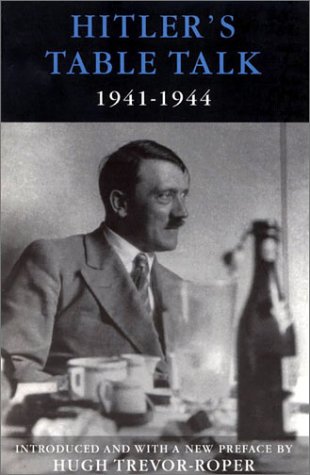 author
authorAdolf Hitler
Adolf Hitler was a German ideologue and statesman, born on April 20, 1889, in Braunau am Inn in Austria-Hungary (today in Austria and still a border town with Germany) and died by suicide on April 30, 1945, in Berlin. Founder and central figure of Nazism, he seized power in Germany in 1933 and established a totalitarian, imperialist, anti-Semitic, racist, and xenophobic dictatorship known as the Third Reich.
Established in Vienna than Munich, he tried vainly to become a self-taught artist since he failed at the Beaux-Arts. Although he tried to evade his military obligations, he took part in the First World War with the Bavarian troops. After the war, he returned to Munich, where he led a rather wait-and-see life in this troubled time before joining the National Socialist German Workers' Party (NSDAP, the Nazi party), created in 1920.
He imposed himself by his oratorical skills at the head of the movement in 1921 and attempted a coup in 1923 which failed. He uses his short prison term to write the book Mein Kampfin, exposing his racist and ultranationalist conceptions. In the 1920s, in a climate of political violence, he and the Nazi Party occupied a growing place in German public life, running for president against Hindenburg and even becoming chancellor on January 30, 1933, during the Great Depression.
His regime quickly set up the first concentration camps intended to repress political opponents (notably socialists, communists, and trade unionists). In august 1934, after a violent operation of physically eliminating opponents and rivals - known as the Night of the Long Knives - and the death of the old Marshal Hindenburg, President of the Reich, he was voted Head of State.
He, therefore, bears the double title of “ Führer ” (guide) and “Reich Chancellor,” thus scuttling the Weimar Republic and ending the first parliamentary democracy in Germany. The policy it conducts is pan-German, anti-Semitic, revanchist, and belligerent. His regime adopted anti-Jewish legislation in 1935, and the Nazis took control of German society ( workers, youth, media and cinema, military industry, science, etc. ).
The expansionism of the regime led Germany to the invasion of Poland in 1939, generating the European component of the Second World War. Germany first experienced a period of military victories and occupied most of Europe. However, it was repulsed on all fronts, then invaded by the Allies: in the East by the Soviets, in the West by the Anglo-Americans and their allies, including forces from countries occupied by Germany.
At the end of a total war that had reached heights of destruction and barbarism, Hitler holed up in Berlin in his bunker and committed suicide while Soviet troops invested the capital of the Reich in ruins. The Third Reich, which Hitler said was to last "a thousand years," lasted only twelve but caused the deaths of tens of millions of people and the destruction of much of Europe's cities and infrastructure.
The unprecedented scale of massacres, such as the genocide of European Jews and Gypsies —committed by the Einsatzgruppen and then in mass killing centers— the starvation of millions of Soviet civilians, or the murder of the disabled, to which must be added the innumerable exactions against the civilian population, the inhuman treatment of Soviet prisoners of war or again the destruction and looting for which he was responsible, as well as the radical racism that singled out his doctrine and the barbarism of the abuse inflicted on his victims, caused Hitler to be judged in a particularly negative way by historiography and collective memory. His person and his name are considered symbols of absolute evil.
Best author’s book



Written books
1



















